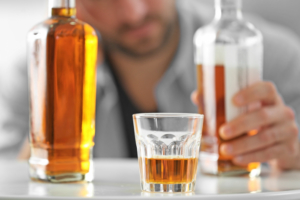So many people suffer from alcohol problems these days and for many, there are feelings of guilt or shame which can actually intensify the issue. Fortunately, alcohol abuse help is available if you ask for it but, the problem for many, is that they are not ready to accept that they have a problem. Therefore, they don’t reach out for help.

It’s easy for alcohol intake to increase substantially without awareness. You may think that you are drinking to a moderate level but in fact, you are drinking far more than you think. It may have started off by being the odd drink on a Friday night after work, but if work pressures increased dramatically, the one night of drinking became two or three and so on. If this sounds familiar, know that it’s an easy trap to fall into and it’s important to eradicate feelings of guilt or shame as this will only compound the problem.
When alcohol abuse occurs alongside stressful situations and issues in life, this can make the problem worse, so understanding why is paramount to fixing the issue which is likely to mean seeking professional counseling.
Do you have an alcohol problem? It is so important to determine whether there is a problem because then steps can be taken to resolve these issues. So, with this in mind, ask yourself the following:
- Do you lie to others about the amount you are drinking?
- Do you feel guilty about your drinking?
- Do you find yourself relying on alcohol to help you unwind?
- Are others worried about the amount you are drinking?
- Do you often drink more than you plan to?
The answers to these questions will determine whether you have a drinking problem, but, there is more to it than this. You may find it easier to consider whether your levels of drinking are causing you a problem on a day to day basis? If it is infiltrating everyday life, then, absolutely, there is a problem. It may be that you drink every day, you may binge drink or, you may put yourself in dangerous situations and drink and drive. Alcohol abuse can quickly spiral into a dependency on alcohol and this means that physically, you will be addicted to alcohol as a substance.
If you have tried to give up drinking alcohol, you may have experienced:
- Withdrawal symptoms
- You may have struggled to give up
- You have started having to drink more to achieve the same effect
Most people dependent on alcohol are not able to give up on their own. Any addiction can be so overwhelming. It doesn’t make you weak. You probably need professional support as alcohol dependency is a serious issue and it can spill into every aspect of life. Treatment, of course, will depend on the extent of the problem. But there are various options and there will be a treatment that will help you. Know that you are likely to have to go through a detoxification process which enables you to withdraw from alcohol but there will be trained counselors who can guide you throughout. Whether you attend on a day release or, sign up for an in-house treatment, there will be one to one sessions and group counseling. Importantly, an alcohol addiction just does not go away, there is alcohol abuse help, but, you do need to reach out and ask for it.
